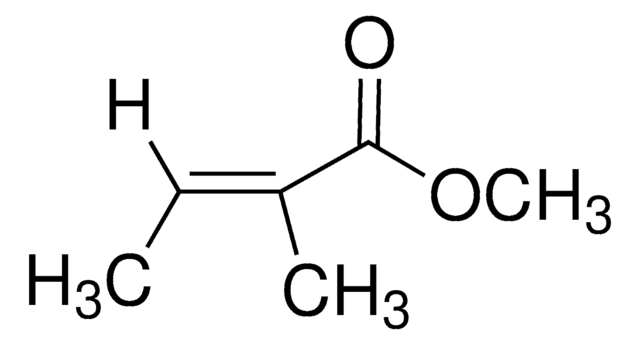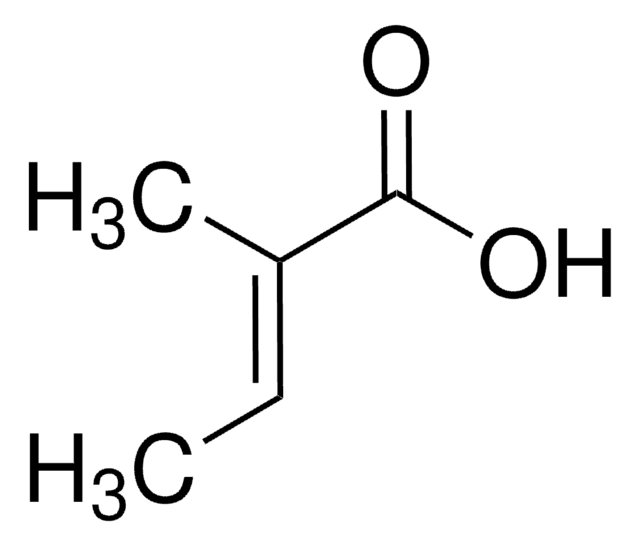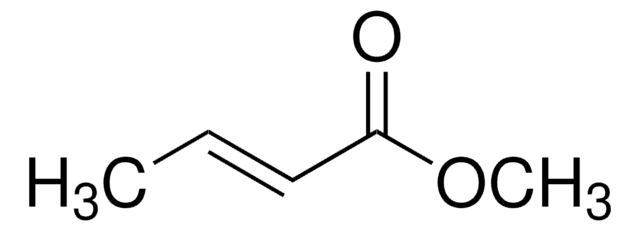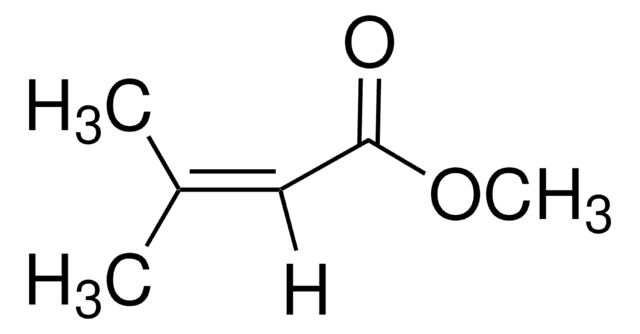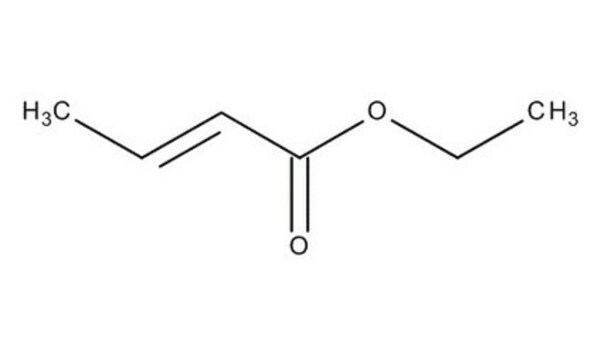W246000
Ethyl tiglate
≥98%, FG
Synonym(s):
Ethyl trans-2-methyl-2-butenoate
About This Item
Recommended Products
biological source
synthetic
Quality Level
grade
FG
Halal
Kosher
Agency
meets purity specifications of JECFA
reg. compliance
EU Regulation 1334/2008 & 178/2002
FDA 21 CFR 117
Assay
≥98%
refractive index
n20/D 1.435 (lit.)
bp
154-156 °C (lit.)
density
0.923 g/mL at 25 °C (lit.)
application(s)
flavors and fragrances
Documentation
see Safety & Documentation for available documents
food allergen
no known allergens
Organoleptic
berry; caramel; fruity; tropical; floral; sweet
SMILES string
CCOC(=O)\C(C)=C\C
InChI
1S/C7H12O2/c1-4-6(3)7(8)9-5-2/h4H,5H2,1-3H3/b6-4+
InChI key
OAPHLAAOJMTMLY-GQCTYLIASA-N
Looking for similar products? Visit Product Comparison Guide
General description
Application
- Metabolism of ethyl tiglate in apple fruits leads to the formation of small amounts of (R)-ethyl 2-methylbutanoate.: Focuses on the metabolic transformation of ethyl tiglate in apples, which contributes to the fruit′s flavor profile (Hauck et al., 2000).
Signal Word
Warning
Hazard Statements
Precautionary Statements
Hazard Classifications
Flam. Liq. 3
Storage Class Code
3 - Flammable liquids
WGK
WGK 2
Flash Point(F)
111.2 °F - closed cup
Flash Point(C)
44 °C - closed cup
Choose from one of the most recent versions:
Already Own This Product?
Find documentation for the products that you have recently purchased in the Document Library.
Our team of scientists has experience in all areas of research including Life Science, Material Science, Chemical Synthesis, Chromatography, Analytical and many others.
Contact Technical Service